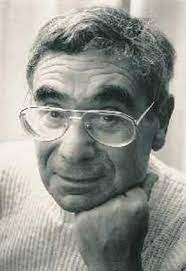Bernstein, Basil

Bio: (1924-2000) British sociologist. Basil Bernstein completed his Ph.D. in linguistics at the University College London, He then moved to the Institute of Education at the University of London, where he worked for the remainder of his career. He is known for his book Class, Codes and Control, 3 vols. (1971, 1973, 1976) where he showed the results of his pioneering study of the relationship between the social class from which a child originates and how that child learns and uses language, both in the family and at school.
He found that there are significant differences between the ability of members of different classes to use symbolic communication. Different use of language influences the creation of different identities, experiences, and views of the world, and it is connected with socialization in the family and with two ways of organizing the household - "positional" and "personalizing". The positional type, and the associated language code, are characteristic of the working and old middle classes. The personalizing type is associated with the "new" middle class, which is engaged in the production of cultural content, while the old middle class is associated with material production and trade. The positional system depends on the direct means of social control - clearly defined social roles. The personalizing type allows individual reflection on identity and meaning.
The difference between these two types of primary socialization affects the creation of two clearly separated linguistic codes: "limited" and "elaborated". Limited language code more often uses short, incomplete, and grammatically simple sentences. Adjectives and adverbs are less often used in this code, while the meaning is often expressed by gesticulation and intonation. Restricted code uses particularistic meanings because it is always tied to the context in which it is spoken. The elaborated code, on the other hand, contains many details and explanations, and the meanings are universalistic because they are not related to a specific context. Because formal schooling focuses on transmitting and developing a universalist type of knowledge and meaning, children who use limited code are less likely to successfully acquire the necessary skills and knowledge. Bernstein also showed that children from working-class families create classifications based on their own experience and knowledge, while children from middle-class families create classifications using abstract principles. Bernstein later applied this type of class analysis to the creation of curricula in British schools.
Main works
Class, Codes and Control, Vol. I. (1971);
Class, Codes and Control, Vol. II: Applied Studies Towards a Sociology of Language (1973);
Class, Codes and Control Vol. III: Towards a Theory of Educational Transmission (1976);
Class, Codes and Control, Vol. IV: The Structuring of Pedagogic Discourse (1990);
Pedagogy, Symbolic Control and Identity: Theory, Research, Critique (1996).

